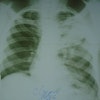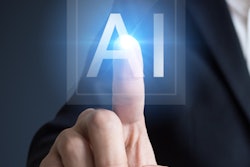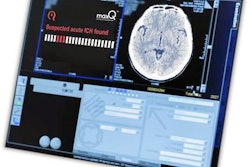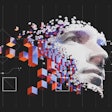Dear Artificial Intelligence Insider,
For a variety of reasons, the radiology artificial intelligence (AI) market has developed slower than many of the technology's proponents would have liked or expected. Consultant Michael J. Cannavo, aka the PACSman, shares his thoughts on why this has happened and what can be done about it in part 6 of his Practical Considerations of AI series -- this edition's Insider Exclusive.
In other news, a deep-learning algorithm can help radiologists detect more cases of lung cancer on chest radiographs than they could on their own, according to a multicenter study. The improvement was statistically significant.
A researcher from Australia analyzed the quality of image labels in two large public image datasets commonly used to train AI algorithms. He found a number of problems that could potentially limit the utility of these datasets.
It's not enough for healthcare AI algorithms to be highly accurate. To achieve widespread clinical adoption, these algorithms must demonstrate that they can improve quality of care and patient outcomes, according to a recent opinion article.
Automation and AI are needed to improve the staff experience for imaging technologists, administrators, radiologists, and collaborating physicians, according to a recent report. A deep-learning model also was found to be highly accurate for identifying normal and abnormal results on PET/CT scans, potentially helping radiologists avoid missed findings.
In addition, an AI algorithm shows promise for improving the sensitivity of radiology residents interpreting chest x-rays from the emergency department (ED). AI could also hasten pneumonia diagnosis from ED chest x-rays.
What's more, a deep-learning model can reliably spot acute intracranial hemorrhage on head CT scans. It may even find some tiny hemorrhages that could be overlooked by radiologists, according to the researchers.
AI can also provide a quick and noninvasive approach to thyroid cancer screening on thyroid ultrasound exams. An AI algorithm that analyzes ultrasound data and lab values could also serve as a valuable tool for diagnosing acute appendicitis, potentially enabling two-thirds of patients without appendicitis to avoid unnecessary surgery.
A new approach to training AI algorithms on imaging data from multiple institutions can produce high-performing models without affecting patient privacy, according to a recent study. Adoption of AI in clinical practice can engender complex medicolegal issues, but physicians can take certain actions to shape how liability determinations will play out.
In case you missed it, seven radiology and imaging informatics organizations in North America and Europe have teamed up on a statement sharing their vision for the ethical use of AI in radiology
Do you have an idea for a story you'd like to see covered in the Artificial Intelligence Community? Please feel free to drop me a line.




















